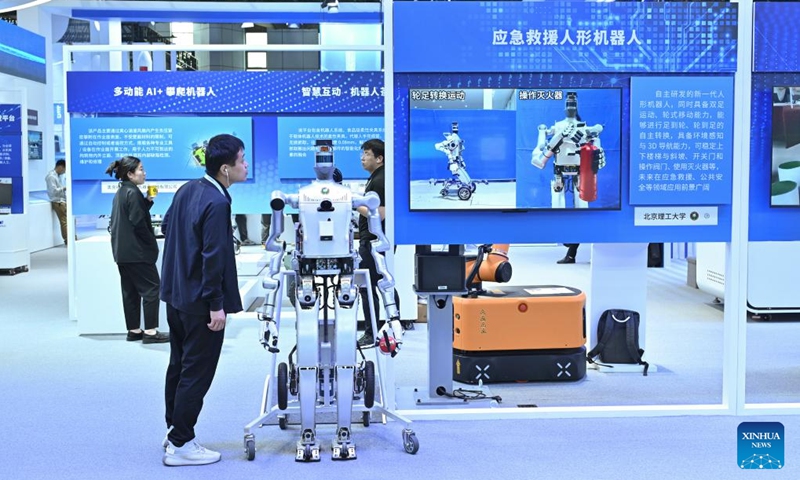☆ Yσɠƚԋσʂ ☆
- 620 Posts
- 499 Comments

 10·2 days ago
10·2 days agolol yeah I knew that was never gonna happen
 2·4 days ago
2·4 days agoOh I just got to Jedha. It’s a good game. The action is pretty fun, and the story is pretty solid so far.
 3·4 days ago
3·4 days agoJust finished Selaco, can highly recommend if you’re into retro shooters. Absolutely blown away with what they managed to do with GZDoom engine too. Currently, giving Deep Rock Galactic: Survivor a shot. It’s sort of like mobile tower defence. A fun game to pick up and pass a bit of time. Also playing Jedi Survivor, it’s a pretty solid adventure game.
My favorite genres tend to be story based games like Detroit Become Human, or Roguelikes. I find I don’t have a huge amount of time for games nowadays, so I prefer stuff that’s not grindy that I can just pick up and play without having to remember how the game works. :)
And negative on TGA.
Looking forward to new Mass Effect, but not sure if it’s coming out in 2025 or not.
don’t think there is, but I’m with you, I generally prefer reading to watching/listening to stuff

 5·13 days ago
5·13 days agothe problems of having an incoherent ideology

 1·13 days ago
1·13 days agoYeah, I don’t think it’s an intractable problem overall. I think it’ll be interesting to see if they can make it work.

 1·14 days ago
1·14 days agoInitially for sure, but I imagine as with any tech once it gets established, the costs will come down to make it more broadly applicable.

 5·14 days ago
5·14 days agoMy guess that HSR making domestic air travel obsolete might be the very motivation for stuff like this. They’re likely betting that flying will only be useful over long distance going forward.

 1·14 days ago
1·14 days agoSure, and there’s nothing wrong with any of that. The system allows for flexibility that’s necessary for innovation. Companies trying speculative things is how technology progresses. Some ideas will be good, others will not. Meanwhile, the government nudges overall development towards particular goals that are seen as socially useful.
If this particular company is making a product that’s not viable then they will die, and that’s perfectly fine. If their idea works then it will produce something useful that will advance the state of aeronautics in China. Either way something useful will be learned in the process.

 1·15 days ago
1·15 days agoThe role of the market in China is very different from the west. SOEs control the commanding heights of the economy. These pillars of industry, spanning banking, energy, and telecommunications, form the bedrock of the economic system, accounting for roughly a third of its GDP. While private companies and a vibrant stock market exist, they operate under a socialist framework, guided by the principles laid out by Chen Yun. Chen advocated for a “birdcage economy,” where the market acts as a bird, free to fly within the confines of a cage representing the overall economic plan.
His approach, adopted in the early 1980s, allowed for use of market forces for efficient allocation of resources, while the state maintained ultimate control over the direction and goals of economic development. The state, acting as the planner, sets the overall goals and priorities, while the market, acting as the allocator, determines the most efficient way to achieve those goals.
While Chinese stock market plays a key role in raising capital for companies to invest in productive activities, it operates under strict regulations to curb speculation and short-term profit-making, ensuring its primary function as a tool for economic development rather than a platform for unchecked wealth accumulation.
Concrete examples of these regulations include restrictions on margin trading, limits on short selling, and measures to prevent insider trading. When companies prioritize profit maximization over social value, regulators can intervene with corrective action. The recent dismantling of the Alibaba Group into six separate business units serves as a clear example of such action, taken to curb the abuse of monopolistic power among the country’s tech giants. In this way, the state is able to exercise oversight and regulation to ensure that the markets serve the broader interests of society.
Private companies, while encouraged to innovate and compete, are also expected to align their activities with broader state goals. This entails contributing to social welfare programs, investing in research and development, and adhering to environmental regulations. In essence, private enterprise in China functions within a framework that prioritizes the collective good and long-term sustainability over the unbridled pursuit of profit and short term growth.

 7·15 days ago
7·15 days agoApparently, there have been some ideas on how to make efficient hypersonic vehicles. The vehicle could be operating in the upper atmosphere where there’s less drag. It would basically be an inherently long haul vehicle where you’d go up do most of the trip up high, and then come back down.

 4·15 days ago
4·15 days agoas a Canadian I can relate

 2·15 days ago
2·15 days agoIt’s all going to depend on what the ticket prices will actually be. I’m going to go out on a limb and assume the company developing these planes has done the basic math to figure out whether it would be remotely profitable or not. It’s been many decades since the Concord was conceived, and it’s entirely possible that the operating costs for the new approach are much lower.

 5·15 days ago
5·15 days agoThat and fuel consumption. However, given that high speed rail is making domestic flights largely irrelevant at this point, it might make sense to focus specifically on long haul flights.

 21·17 days ago
21·17 days agoMost people kind of just assumed that open source was immune from politics, and now that illusion is being shattered. I expect that long term this will lead to bifurcation of technology between the G7 and BRICS. We’re already seeing Chinese companies go their own way, and stuff like OpenHarmony is a direct product of US sanctions.
If the west is going to continue to act petulantly then countries outside the west will have no choice but to fork projects like Linux kernel and develop them on their own. This could backfire spectacularly on the west as these could end up forks becoming more popular than the original projects soaking up the talent around the world. We saw this scenario play out on a smaller scale when Oracle acquired Sun and declared that they owned MySQL, Hudson, and OpenOffice. Forks sprung up overnight and now the original projects are effectively dead.

 17·18 days ago
17·18 days agoSoviet engineering for the win.

 20·21 days ago
20·21 days agoI think it’s actually kind of funny how western propaganda convinced people that China isn’t capable of doing anything on its own. The whole notion that there’s no innovation, and Chinese are only able to copy what brilliant western minds produce is really deeply ingrained at this point. However, now western leadership is in a panic because they’re starting to realize China is overtaking the west technologically, but you can’t undo decades of conditioning over night, so it’s really hard to get westerners to actually believe it.

 6·27 days ago
6·27 days agoAbsolutely, and this kind of fundamental research can only really be accomplished with state level commitment. Even in the west, much of the research into computing tech was publicly funded initially before it was handed over to the companies.





















lol that would be the first color revolution overthrowing a government installed in a color revolution :)